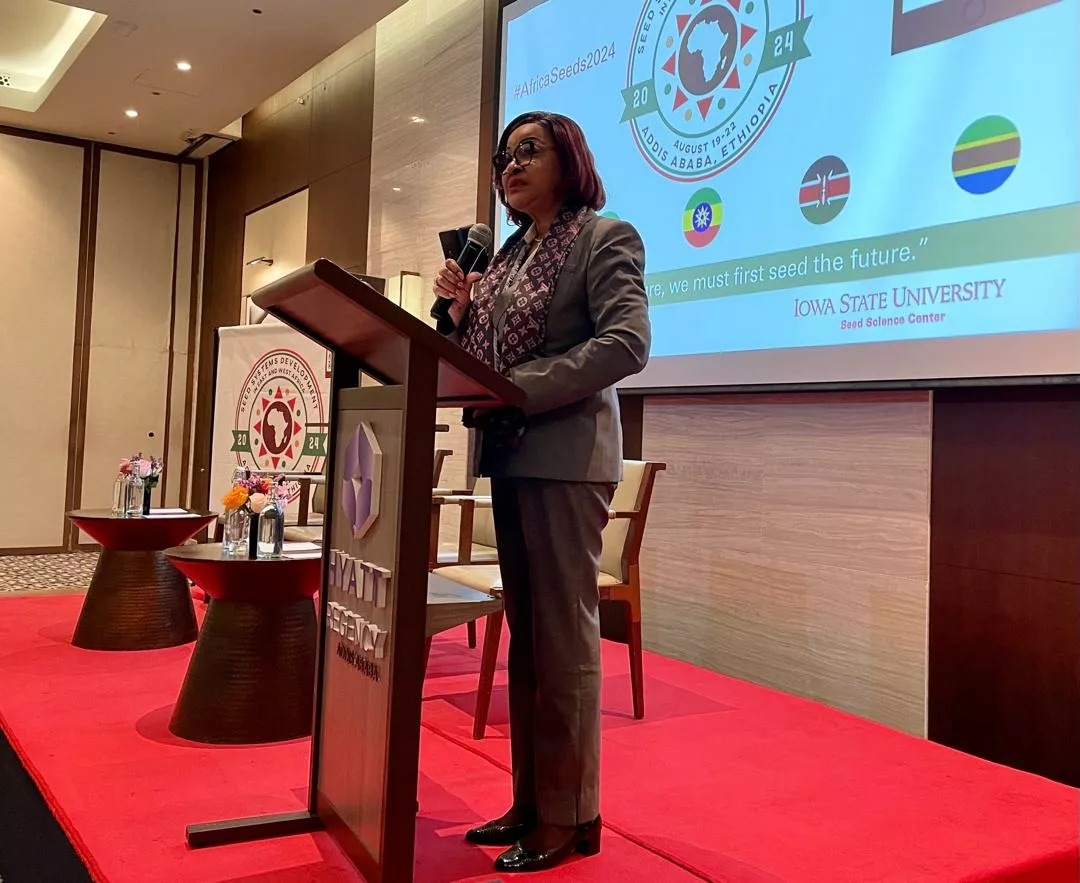|
Getting your Trinity Audio player ready...
|
The Continent must create robust seed systems because they form the basis of agriculture, and determine productivity, resilience and food sustainability, argued African Union Commissioner Josefa Correia Sacko today in Addis Ababa.
Ambassador Josefa Sacko is the Commissioner of the Department of Agriculture, Rural Development, Blue Economy and Sustainable Environment at the African Union Commission.
The diplomat was speaking at a seminar on the development of seed systems in East and West Africa, organised by the United States Department of Agriculture (USDA) and the Seed Science Centre at Iowa State University.
She said that in Africa, where agriculture is the backbone of many economies and livelihoods, the effectiveness of seed systems in East and West Africa is crucial.
The effectiveness of seed systems has a direct impact on food security, economic development and the well-being of millions of small farmers.
“Our collective goal is clear: to identify initiatives, interventions and opportunities that will lead to significant improvements in the scale of seed system effectiveness. We must improve farmers’ access to quality seeds, which is fundamental to crop diversification and resilience,” said the AU Commissioner.
According to her, the fourth biennial report of the Comprehensive Africa Agriculture Development Programme (CAADP) ‘sheds light’ on the current state of seed systems on the continent, she said.
The current state of seed systems on the continent is encouraging and she highlighted areas requiring urgent attention.
She highlighted the commendable performance of countries like South Africa, which have established well-structured seed sectors characterised by effective protocols for releasing varieties, protocols, extensive breeding programmes and a sophisticated national research system as a model for strengthening systems.
“However, the challenges faced by several countries, including Botswana, the Republic of Congo, Djibouti, Lesotho and Seychelles, where there are deficiencies in the seed system infrastructure and a lack of formalised processes represent significant barriers to the advancement of agriculture in these countries”, she stressed.
The Ambassador recognised that despite the progress made, agricultural research institutes across the continent continue to face constraints such as insufficient human capital, inadequate funding and outdated infrastructure.
“These limitations impede our ability to move forward with breeding programmes and develop new resilient seed varieties that can withstand the challenges posed by climate change and other environmental pressures.”
She believes that the governance structure of the African Partnership Platform for Seeds and Biotechnology will play a crucial role in providing the effective regional coordination mechanisms needed to promote collaboration, knowledge sharing and capacity building.
On the other hand, Commissioner Sacko assured that it is important to respect regional coordination mechanisms and the principles of complementarity and subsidiarity when developing these action plans in partnership with the private sector, the promotion of plant breeding for climate resilience and better nutrition, and the promotion of participatory mechanisms for the conservation of biodiversity and Indigenous knowledge which are fundamental to success.






